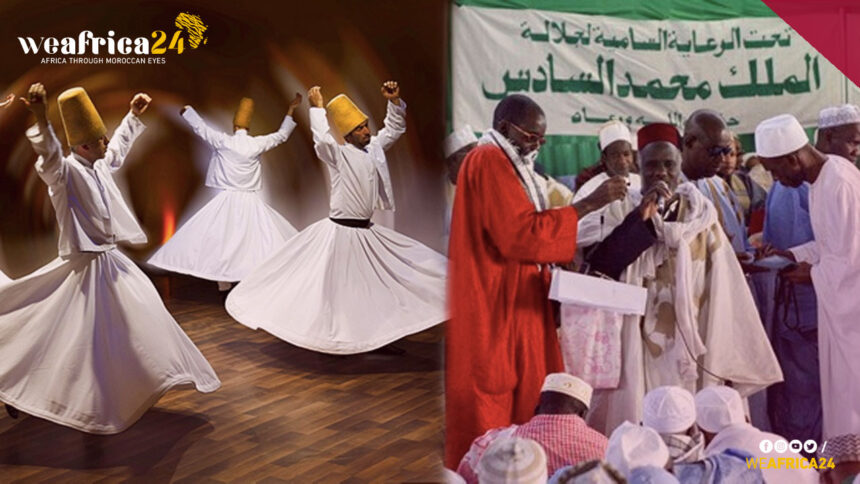In the bustling city of Fez, Morocco, a group of men dressed in white robes gather together for their daily prayer. They are part of the Tidjaniya, a Sufi order that has been in existence for over 200 years. The Tidjaniya has a rich history and a global following, and its teachings have influenced the lives of millions of people worldwide.
The Origins of the Tidjaniya
The Tidjaniya was founded by Ahmed Tidjani, a Sufi mystic who lived in Fez during the 18th century. Tidjani was born in 1737 in the town of Ain Madhi in present-day Algeria. He was raised in a family of scholars and learned the Quran and Islamic jurisprudence at an early age.
As a young man, Tidjani traveled extensively throughout North Africa and the Middle East, seeking knowledge and spiritual guidance. He eventually settled in Fez, where he began to attract a following of disciples. Tidjani’s teachings were centered on the importance of inner purification and the cultivation of a deep connection with God.
Tidjani’s approach to Sufism was unique in that he emphasized the importance of regular daily prayers, rather than the more esoteric practices that were common among other Sufi orders. He believed that the path to spiritual enlightenment lay in the daily practice of prayer and meditation, as well as the constant remembrance of God.
The Spread of the Tidjaniya
Under Tidjani’s leadership, the Tidjaniya quickly grew in popularity and began to spread throughout North Africa and beyond. Tidjani himself traveled extensively throughout the region, establishing new centers of worship and teaching his followers.
One of Tidjani’s most famous disciples was El Hadj Umar Tall, a West African warrior, and scholar who played a key role in the spread of Islam in West Africa during the 19th century. Tall was introduced to the Tidjaniya by a Sufi teacher in Senegal, and he quickly became a devoted follower of Tidjani’s teachings.
Tall went on to establish a powerful Islamic state in West Africa, centered around the city of Touba in present-day Senegal. He used his military and political power to spread the teachings of the Tidjaniya throughout the region, and today the Tidjaniya is one of the largest Sufi orders in West Africa.
The Tidjaniya also spread to other parts of the world, including Southeast Asia and the Indian subcontinent. In Indonesia, the Tidjaniya is known as the Qadiriyya-Tidjaniya, and it has a large following among the country’s Muslim population.
Practices and Beliefs
The Tidjaniya is known for its emphasis on the regular practice of prayer and meditation. Followers are expected to perform the five daily prayers, as well as additional prayers and recitations throughout the day. The Tidjaniya also places a strong emphasis on the remembrance of God and the repetition of certain phrases, such as the phrase “la ilaha illa Allah” (there is no god but God).
In addition to prayer and meditation, they also emphasize the importance of inner purification and the cultivation of a deep connection with God. Followers are expected to strive for moral excellence and to avoid behaviors that are considered sinful, such as lying, stealing, and engaging in sexual misconduct.
The Tidjaniya also places a strong emphasis on the role of the spiritual teacher.







